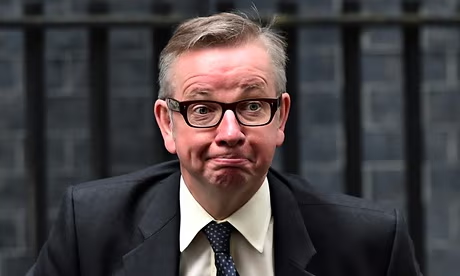Introduction to Micheal Teaching Politics
Politics can often feel overwhelming, filled with complex systems and a myriad of roles that influence our everyday lives. Enter Micheal Teaching Politics—a refreshing approach that simplifies these intricacies and makes political engagement accessible for everyone. Whether you’re a seasoned political enthusiast or just starting to dip your toes into the world of governance, Micheal’s teachings provide valuable insights into how politics operate and how you can be part of the conversation.
This guide invites you on a journey through the core principles behind Micheal Teaching Politics. You’ll discover not only what it means to understand the political system but also learn about various roles within this landscape. With practical applications in political campaigns and an honest look at challenges faced by this teaching method, you’ll gain perspective on where we might be headed next in the realm of politics. Let’s dive deep into this transformative approach together!
Understanding the Political System according to Micheal Teaching Politics
Micheal Teaching Politics provides a fresh lens through which to view the political landscape. It emphasizes the importance of understanding various systems by breaking them down into simpler components.
At its core, Micheal’s approach encourages active engagement. He believes that knowledge about how governments function is vital for every citizen. This implies more than just knowing who your representatives are; it involves grasping how policies are formed and enacted.
The framework also highlights the interconnectedness of local, state, and federal levels. Each layer impacts one another in ways that often go unnoticed by the general public.
By emphasizing civic education, Micheal aims to empower individuals to make informed decisions. The focus lies on fostering critical thinking skills necessary for navigating today’s complex political environment.
Identifying Different Roles in Politics
Politics is a complex arena filled with various roles, each vital to the functioning of governance. Understanding these roles can clarify how decisions are made and who influences them.
Politicians often take center stage. They craft policies and represent constituents’ interests. Their responsibilities vary based on their position—whether they are local officials or members of national legislatures.
Then there are political advisors and strategists. These individuals provide critical insights that shape campaigns and policy directions. Their expertise helps navigate the intricate landscape of public opinion and media relations.
Activists play another essential role in politics. They mobilize communities around issues, driving grassroots movements that can lead to significant change.
Civil servants ensure that government functions efficiently behind the scenes. From bureaucrats to analysts, they implement policies and keep operations running smoothly while remaining largely unseen by the public eye.
Advantages of Using Micheal Teaching Politics
Micheal Teaching Politics offers a fresh perspective on the political landscape. It emphasizes understanding over mere participation, encouraging individuals to engage thoughtfully with political issues.
One major advantage is its focus on critical thinking. This approach empowers students and citizens alike to analyze policies deeply rather than accepting surface-level narratives. They learn how to question decisions and seek evidence before forming opinions.
Another benefit is its inclusivity. Micheal’s teachings aim to bridge gaps between diverse groups, fostering dialogue that can lead to collaboration instead of conflict.
Moreover, this method encourages civic engagement by making politics relatable. By connecting theoretical concepts with real-world applications, learners become more invested in their communities and governance.
It cultivates future leaders equipped with practical skills and ethical frameworks necessary for effective governance in an increasingly complex world.
Implementing Micheal Teachings in Political Campaigns
Implementing Micheal teachings in political campaigns can be transformative. Campaigns that embrace these principles often resonate more deeply with their audience.
The focus shifts to genuine engagement. Rather than relying solely on traditional methods, candidates begin to connect personally with voters. This fosters trust and loyalty.
Incorporating storytelling is vital. Micheal emphasizes narratives that reflect shared values and experiences. When candidates share relatable stories, they create a sense of community among supporters.
Moreover, transparency becomes a cornerstone of campaign strategies. By being open about policies and intentions, politicians build credibility.
Leveraging social media effectively amplifies these teachings. Digital platforms allow for real-time interactions and feedback from constituents.
This approach not only enhances voter outreach but cultivates an informed electorate ready to participate actively in democracy.
Challenges and Criticisms of Using Micheal Teaching Politics
Micheal Teaching Politics, while insightful, faces its share of challenges. Critics often argue that the framework can be overly simplistic. It may not account for the complexities of human behavior and diverse political landscapes.
Another concern is its applicability across different cultures. What works in one society might not resonate in another. This raises questions about universality.
Additionally, some believe it lacks empirical backing. Without solid evidence to support its principles, skeptics remain unconvinced of its effectiveness.
There’s also a tendency for over-reliance on these teachings during campaigns. Candidates might focus too much on theory rather than genuine engagement with voters’ needs and concerns.
Adapting Micheal’s concepts to real-world scenarios can prove difficult. Bridging theoretical ideas with practical application remains a significant hurdle for many aspiring politicians.
Conclusion: The Future of Politics with Micheal Teaching
The landscape of politics is constantly evolving. Micheal Teaching Politics offers a fresh perspective that challenges traditional norms and encourages deeper engagement from individuals across various levels of the political spectrum. This approach focuses on understanding the intricacies of political systems, empowering citizens to play active roles, and effectively communicating messages during campaigns.
As more people adopt these teachings, we may witness a shift toward more inclusive and participatory governance. The emphasis on education within this framework could lead to better-informed voters who can critically analyze policies and candidates.
While there are challenges ahead—such as resistance from established political entities—the potential for positive change is immense. Embracing Micheal Teaching Politics might just be the catalyst needed to bridge gaps between politicians and constituents, leading us into an era where politics becomes less about division and more about collaboration.
The future holds exciting possibilities for those willing to explore new ideas in governance through this innovative approach. As individuals become empowered by knowledge, it’s clear that Micheal’s teachings will continue to influence how we understand and engage with politics today—and in years to come.








